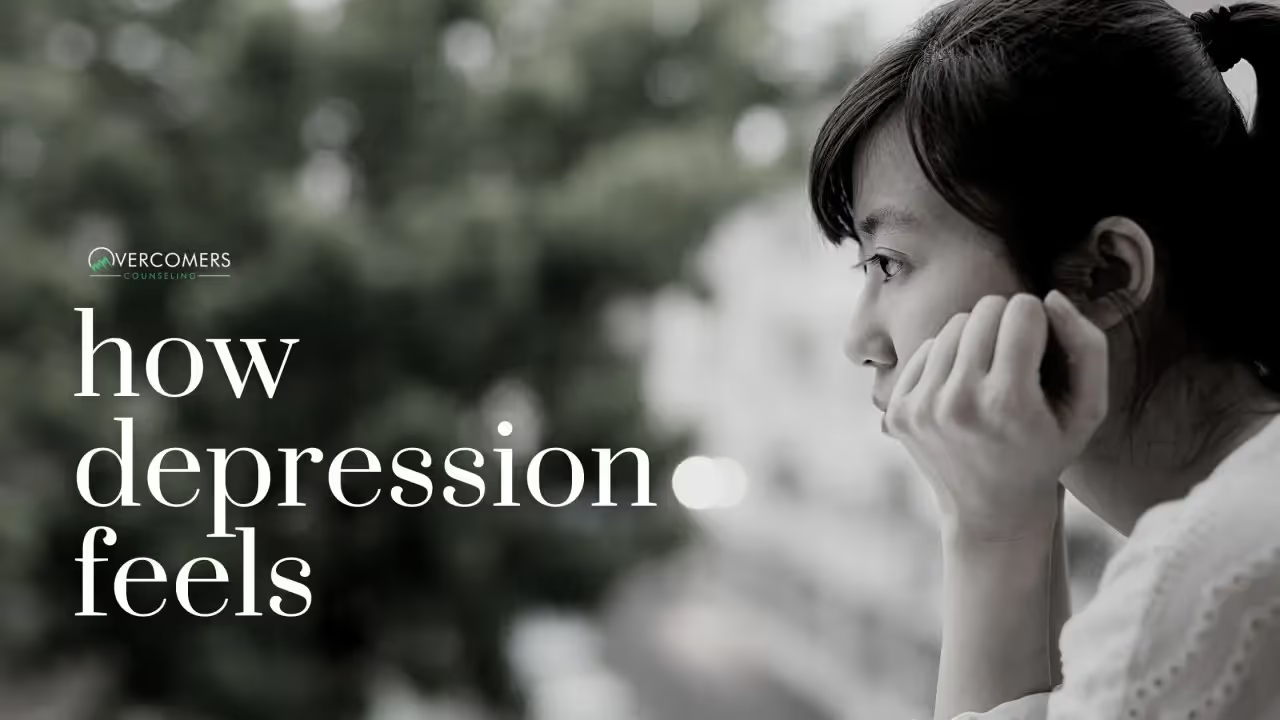How depression feels varies from person to person. Unfortunately, depression usually presents as a cluster of symptoms and feelings. This can make it...

How depression feels varies from person to person. Unfortunately, depression usually presents as a cluster of symptoms and feelings. This can make it difficult to diagnose. It can also make depression difficult to understand.
If you think you might be suffering from depression, then understanding how depression feels is a great first step to figuring out if you are dealing with depression.
People typically associate depression with feelings of sadness and hopelessness. While this is certainly true, there are also many other ways in which depression can affect you. This article will show you how depression feels in several different areas of yourself and life.
How depression feels in your mind is one of the least recognized categories.
Depression doesn't just affect your body and emotions, it often also causes cognitive disruptions. The most notable way that depression feels in your mind is brain fog. This is an inability to think clearly. Depression can affect your memory and it may cause you to have trouble remembering things.
Many people who suffer from depression also report a noticeable difference in their ability to focus or concentrate. If you suddenly find yourself unable to focus on your work, your family, reading, and/or any activities that you usually enjoy and/or engage with - that could be a sign of depression.
If these kinds of symptoms are interrupting your ability to work, then it is important that you seek help before it begins affecting your career or income in a negative way.
Depression feels like you're disconnected from your mind. Or, separated from yourself. This often presents as a difference in cognitive ability. If you're experiencing these effects, there's nothing wrong with you - it might be depression.

Like physical effects, how depression feels in your emotions varies from person to person. A person with depression often feels sad and hopeless, unable to focus on the things that used to give them pleasure.
A persistent feeling of sadness is the most common way that depression feels. It can often be triggered by traumatic or painful transitions in your life.
For example, if you have recently lost a loved one or a job. Maybe you've experienced a contentious divorce or a cruel breakup. Such events may trigger depression which makes it harder for you to bounce back.
Transitions and changes are part of the natural cycle of life.
However, depression may prevent you from recovering or starting over. If you're feeling like life is pointless - that is often how depression feels.
While sadness is the emotion most commonly used to describe how depression feels, it can also present as a lessening of emotions.
This means that the people and activities that used to give you pleasure and a sense of purpose have lost their meaning. You may have a hobby that you've abandoned. You may have a promotion that didn't feel exciting. You may feel that your life is going nowhere.
Don't worry because that's often how depression feels.
How depression feels in your body also varies from person to person. Most people who suffer from depression experience the effects in their body as changes to their appetite or their sleep patterns.
With appetite, people sometimes see a decrease of interest in food or eating. You might sit at a table full of foods that you love, but lack any excitement to eat them. Your food might also feel that it doesn't taste as good.
On the other hand, many people use food to soothe their feelings of sadness when depressed.
This means that depression could also lead to weight gain.
How depression feels when you are eating is often a lessened excitement for food alongside an inability to feel food or satisfaction.
Overeating may also accompany a lack of motivation to exercise or go outdoors.
This is why depression often leads to weight gain.
Whether it's an increase or a decrease, a change in appetite is often a sign of depression.
How depression feels in your family is like a heavy cloud or weight that gets thrown over the dynamic. You might experience a loved one pulling away from your relationship. You might see them struggling to stay employed. You might see them ignoring family obligations or not attending family events.
These could be signs that your family member, partner, or loved one is suffering from depression. It is often common for a person to take it personally when someone they care about isn't engaging with them as much or as enthusiastically as they used to do.
However, it's not your fault if someone that you love is suffering from depression.
And, it doesn't mean that their feelings have changed for you: it means that they need your help and your support.
How depression feels varies from person to person. However, there are an identifiable cluster of feelings as described in this article.
If you or someone you love is showing signs of depression, the best thing you can do for them or for yourself is to seek professional help.
Treating depression is the fastest way to lessen how depression feels.
Yes! There are many effective natural remedies that may be beneficial in managing depressive symptoms, such as participating in regular physical activity, changing your diet, getting adequate sleep, practicing relaxation techniques like yoga or meditation, journaling about your feelings/thoughts/emotions, seeking out social activities/support groups with other individuals struggling with similar issues
Therapy provides many benefits for people battling depression. Research has shown that cognitive-behavioral therapy (CBT) is particularly effective in managing depressive symptoms. In addition, therapy can teach healthy coping skills and provide emotional support during difficult times. It may also be used as part of a comprehensive treatment plan which includes medication as well as lifestyle changes such as regular exercise and improved nutrition.
If your symptoms of depression have been persistent and interfere with your daily life, it's important to seek help from a mental health professional. It's also a good idea to get medical advice if you experience any thoughts of self-harm or suicide.
Yes! In fact, it's encouraged that you open up to your therapist so they can gain deeper insight into your individual situation and develop the most effective treatment plan possible that works best for you. Your therapist is there to serve as an unbiased source of support who will respect any thoughts or feelings shared within the session without judgment or criticism.
The duration of depression counseling varies for each individual, depending on the severity of their depression and their progress in therapy. Our therapists will regularly assess your progress and adjust your treatment plan as needed.
Depression is a mental disorder (a common one) that affects millions of people worldwide. It is characterized by persistent feelings of sadness, hopelessness, and loss of interest in activities once enjoyed.In this section, we will discuss the various types of depression, including major depressive disorder, persistent depressive disorder, and bipolar disorder.Gaining a deeper understanding of your depression is the first step in finding the right treatment and support.